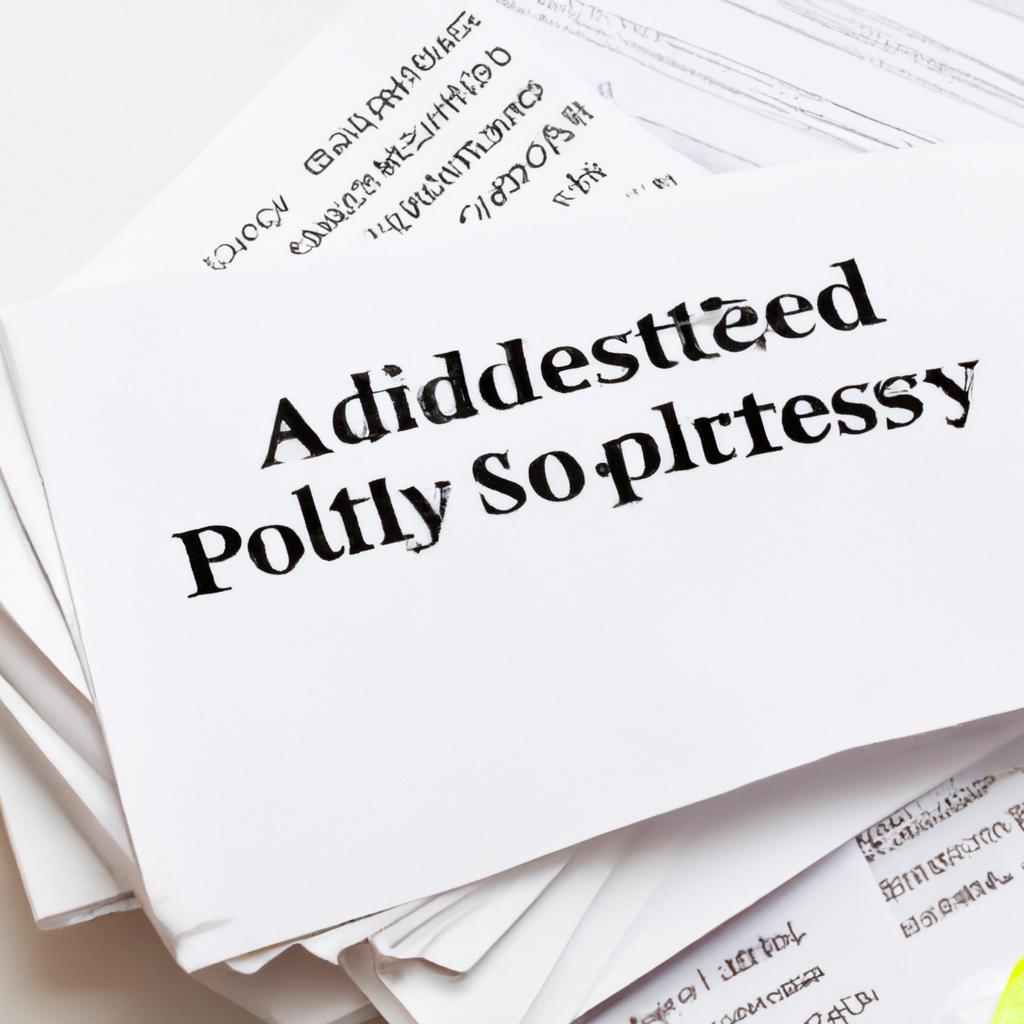Partition lawsuits are a common legal remedy sought by individuals who co-own property and are seeking to divide or sell their shared assets. These complex legal proceedings require careful consideration of various factors, including property rights, ownership interests, and potential disputes among co-owners. At Morgan Legal Group in New York City, our experienced team of lawyers specializes in handling partition lawsuits with precision and expertise. Whether you are looking to assert your rights as a co-owner or defend against a partition action, our firm is here to provide you with the guidance and representation you need to navigate through this challenging process effectively.
Challenges of Resolving Inherited Property Disputes through Partition Lawsuits
Inherited property disputes can be complex and emotionally charged, especially when family members are involved. Resolving these disputes through partition lawsuits presents its own set of challenges that must be carefully navigated. One of the main challenges is the potential strain it can place on family relationships, as litigation can often exacerbate tensions and lead to further conflict.
<p>Another challenge is the division of the property itself, as it may not always be easily divisible. This can lead to disputes over how to fairly split up the property, especially if there are unique features or sentimental value attached to certain portions. Additionally, valuation of the property can be a contentious issue, as parties may have differing opinions on the worth of the property and how to fairly divide its value.</p>
Navigating the Legal Complexities of Partition Lawsuits in New York
When it comes to , it is essential to understand the intricacies of the law and how it applies to your specific situation. A partition lawsuit arises when co-owners of real property cannot agree on the sale or division of the property, and one or more parties seek a court-ordered partition to resolve the dispute. In New York, there are two types of partition actions: partition in kind, where the property is physically divided between the co-owners, and partition by sale, where the property is sold and the proceeds are divided among the co-owners.
Successfully navigating a partition lawsuit in New York requires a thorough understanding of the legal process and the rights of the parties involved. From filing the initial petition to resolving any disputes that may arise during the litigation process, having an experienced attorney on your side can make all the difference. At Morgan Legal Group, our team of skilled attorneys has the knowledge and expertise to guide you through the complexities of partition lawsuits in New York and help you achieve a favorable outcome.

Key Considerations Before Filing a Partition Lawsuit
When considering filing a partition lawsuit, there are several key considerations that you should keep in mind to ensure the process goes smoothly and in your favor.
First and foremost, it is important to assess the value of the property in question. This will help determine if the potential benefits outweigh the costs involved in pursuing legal action. Additionally, you should consider the relationships involved, as a partition lawsuit can strain family ties. It is crucial to weigh the emotional impact against the benefits of a successful outcome. Lastly, consult with an experienced attorney who specializes in partition lawsuits to guide you through the process and provide valuable insight into your specific situation.

Strategies for Achieving Fair Resolutions in Partition Lawsuits
When navigating partition lawsuits, it is essential to employ strategic approaches that prioritize fairness and equitable resolutions. One effective strategy is to engage in open communication and negotiation with the other parties involved. By openly discussing each party’s interests and concerns, a more collaborative and mutually beneficial solution can often be reached.
Additionally, utilizing mediation or arbitration can provide a structured and neutral environment for resolving disputes. These alternative dispute resolution methods allow for a third party to facilitate discussions and help the parties come to a fair agreement. Finally, seeking guidance from experienced legal professionals, such as the team at Morgan Legal Group, can provide valuable insights and expertise to help navigate the complexities of partition lawsuits successfully.
Q&A
Q: What is a partition lawsuit?
A: A partition lawsuit is a legal action brought by co-owners of a property who are unable to agree on how the property should be divided or used.
Q: What are some common reasons for filing a partition lawsuit?
A: Some common reasons for filing a partition lawsuit include disagreements over how to use the property, conflicts between co-owners, or a desire to sell the property and divide the proceeds.
Q: How does a partition lawsuit work?
A: In a partition lawsuit, the court will typically appoint a neutral third party to oversee the division or sale of the property. The proceeds from the sale will then be divided among the co-owners according to their ownership interests.
Q: Can a partition lawsuit be avoided?
A: In some cases, co-owners may be able to reach an agreement on how to divide or use the property without resorting to a lawsuit. It is advisable to seek the assistance of a mediator or attorney to facilitate negotiations and potentially avoid litigation.
Q: How long does a partition lawsuit typically take?
A: The timeline for a partition lawsuit can vary depending on the complexity of the case and the cooperation of the parties involved. It is important to be prepared for a potentially lengthy legal process.
The Way Forward
As we navigate the complexities of family dynamics and property disputes, the partition lawsuit serves as a remedy for those seeking resolution. Whether you are faced with conflicting interests or emotional turmoil, understanding your rights and options is crucial in moving forward. Remember, finding a balance between legal guidance and constructive communication is key in reaching a just outcome. Embrace the journey of finding closure and reclaiming a sense of peace within your family dynamic. Stay informed, stay empowered, and let the law guide you towards a brighter future.
 Partition Lawsuit: Understanding the Process and Your Rights
Partition Lawsuit: Understanding the Process and Your Rights
A property is usually considered to be a valuable asset and often holds emotional significance for individuals and families. However, when multiple parties have a share in a property, conflicts and disputes can arise, leading to the need for a partition lawsuit. This legal process is commonly used in cases where co-owners of a property cannot come to an agreement on how to divide or sell the property. If you find yourself in a similar situation, it is essential to understand the process and your rights in a partition lawsuit. In this article, we will dive into the details of this legal process and provide valuable information to help you navigate a partition lawsuit effectively.
What is a Partition Lawsuit?
A partition lawsuit is a legal action initiated by a co-owner of a property to force the division or sale of the property. The property in question can be any real estate, including land, buildings, or commercial properties, and can have multiple owners. A partition lawsuit aims to resolve conflicts between co-owners by either physically dividing the property or selling it and dividing the proceeds among the owners. This legal process is an option when co-owners cannot come to an agreement on how to manage the property.
Reasons for a Partition Lawsuit
There can be various reasons why co-owners may file a partition lawsuit. Some of the common reasons include:
– Conflicts between co-owners due to different opinions on how to manage the property.
– Disagreements over the use of the property, such as renting, renovating, or selling.
– One owner wanting to sell or buy out their share of the property while others do not agree.
– Inherited property where co-owners cannot come to an agreement on how to divide or manage it.
Types of Partition Lawsuits
There are two main types of partition lawsuits: partition in kind and partition by sale.
1. Partition in kind: This type of partition lawsuit involves physically dividing the property. The court will determine how the property can be divided fairly and equitably among the co-owners. This option is usually preferred when the property can be divided without significantly devaluing it, such as a large piece of land.
2. Partition by sale: This type of partition lawsuit involves selling the property and dividing the proceeds among the co-owners. This option is usually preferred when the property cannot be physically divided, such as a commercial property or a shared home.
Understanding Your Rights in a Partition Lawsuit
As a co-owner, you have certain rights in a partition lawsuit that you should be aware of. These include:
1. The right to seek a partition: As a co-owner, you have the right to initiate a partition lawsuit if you are unable to come to an agreement with other co-owners. This right is protected by the law and cannot be denied by other co-owners.
2. The right to a fair share: In a partition lawsuit, the court will ensure that each co-owner receives a fair share of the property, whether it is through physical division or sale.
3. The right to object to a partition by sale: If you disagree with a partition by sale, you have the right to object and offer alternatives, such as buying out the other co-owners’ shares. However, the court will ultimately decide on the best course of action for the property.
Benefits of a Partition Lawsuit
A partition lawsuit can provide several benefits, including:
1. Resolution of conflicts: A partition lawsuit is a legal process that can help resolve conflicts between co-owners and provide a fair solution for the property.
2. Clear ownership: After the property is divided or sold, each co-owner will have a clear title to their share of the property, eliminating any future disputes.
3. Fair distribution of assets: A partition lawsuit ensures that each co-owner receives a fair share of the property’s value, whether through physical division or sale.
Practical Tips for Navigating a Partition Lawsuit
If you find yourself involved in a partition lawsuit, here are a few practical tips to help you navigate the process effectively:
1. Seek legal advice: Consulting a real estate or property lawyer who has experience in partition lawsuits can be beneficial in understanding your rights and options in the case.
2. Negotiate with other co-owners: Before proceeding with a partition lawsuit, try to communicate and negotiate with other co-owners to reach an agreement outside of the court. This can help save time and money in the long run.
3. Prepare financial records: In cases of partition by sale, it is essential to have accurate financial records of the property to ensure a fair distribution of the proceeds.
Case Study: Jeff and Sarah lived together in a house co-owned by Sarah’s parents. After a few years, Sarah’s parents decided to sell their share of the property, causing a conflict between Jeff and Sarah. They could not agree on how to divide the property, resulting in a partition lawsuit. After seeking legal advice, they opted for a partition by sale, where the property was sold, and the proceeds were divided equally between the three parties, resolving the conflict.
In Conclusion
A partition lawsuit is a legal process that can be used to resolve conflicts between co-owners of a property. As a co-owner, it is essential to understand your rights and options in a partition lawsuit to navigate the process effectively. Seeking legal advice, negotiating with other co-owners, and having accurate financial records can be crucial in successfully resolving a partition lawsuit. Make sure to consult a reputable lawyer and educate yourself on the process to find the best solution for your property.












